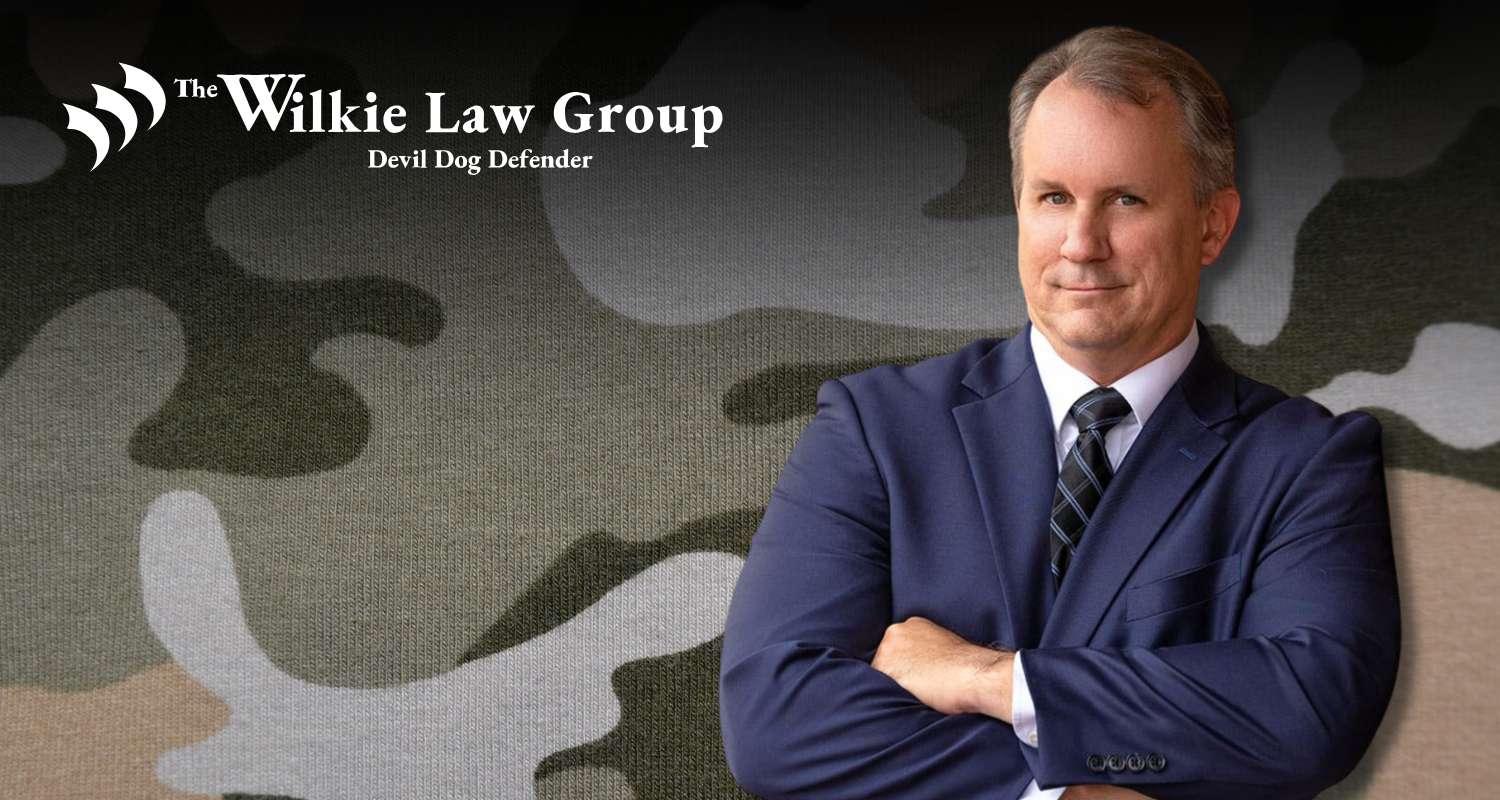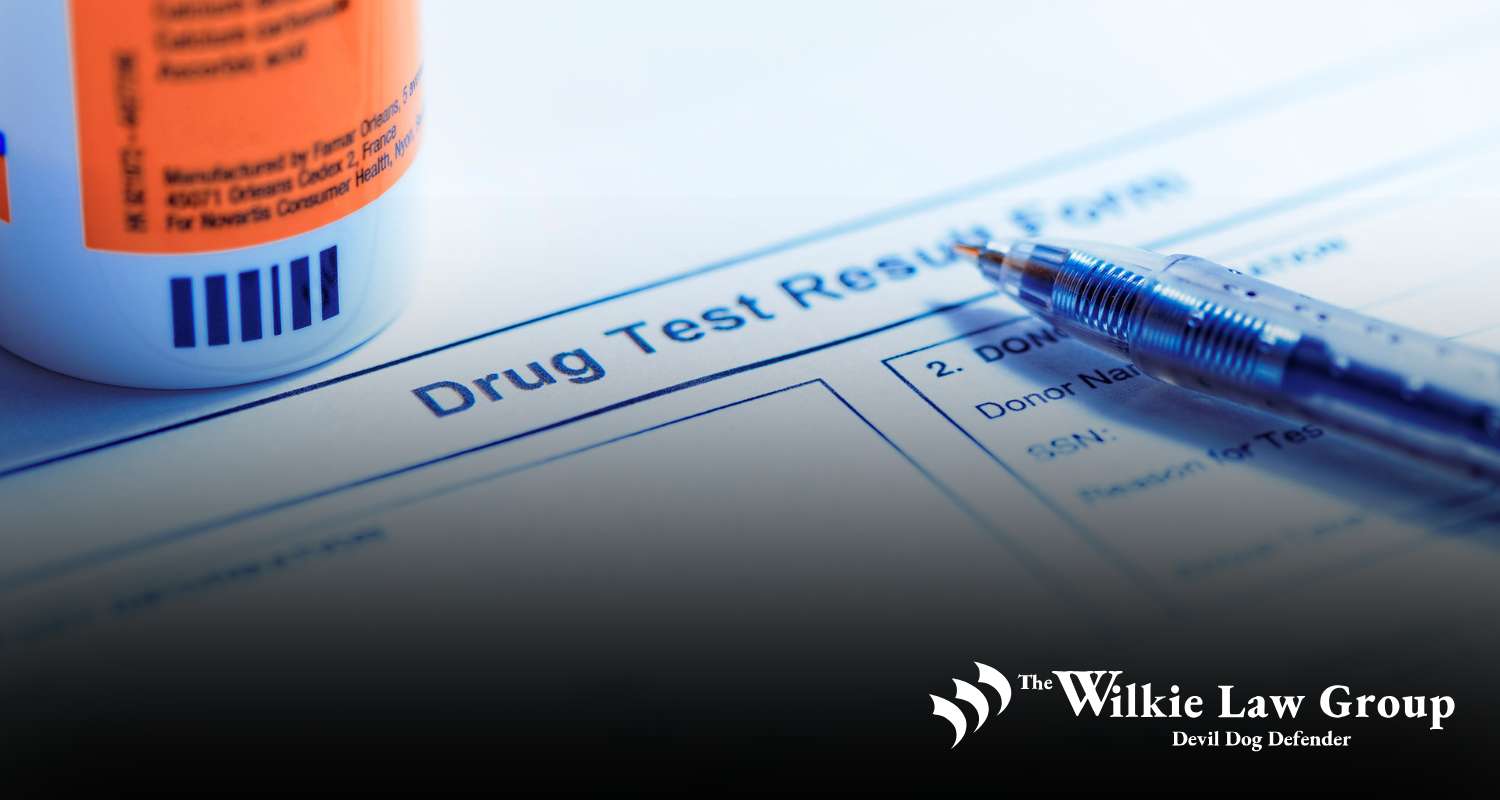Article 112a UCMJ
Military Drug Lawyers in Jacksonville, NC
Home » Military Defense Lawyer » Article 112a UCMJ
Military Counsel
UCMJ Article 112a - Military Drug Crimes
Drug offenses in the military are taken very seriously and carry severe consequences for those accused. Under Article 112a UCMJ, offenses like wrongful possession, use, trafficking, manufacturing, or distribution of controlled substances are strictly prohibited and punishable under both military and federal law.
The contraband nature of these substances and the strict standards placed on a person subject to military law add further gravity to these charges. Not only that, but the stress and uncertainty surrounding such allegations can impact both service members and their families.
If you’re facing a military drug charge, a skilled North Carolina military defense attorney like Aden Wilkie at The Wilkie Law Group can provide dedicated legal representation and strategic advice tailored to the unique challenges of your case. Aden and his team understand the many nuances and challenges of the military justice system and are fully committed to protecting your rights, career, and future.
Contact our experienced military defense lawyers at (910) 333-9626 or reach out online to schedule a consultation and allow us to help you determine the best course of action and provide the vigorous defense you need.

Military Drug Policy
The use, possession, and distribution of drugs or controlled substances are all prohibited under the punitive articles of the UCMJ (Uniform Code of Military Justice). All branches of the military have a zero-tolerance policy when it comes to drug use. This is because the military expects its troops to be prepared at all times and to behave in a highly disciplined manner.
Military personnel who are under the influence of narcotics are typically unable to operate at the high physical and mental capacity that the armed services require. As a result, using drugs while serving in the military can have serious implications.
UCMJ Drug Use Article
Article 112(a) of the Uniform Code of Military Justice covers the wrongful use, possession, etc., of controlled substances in the military.
More specifically, the article allows for the prosecution of wrongful possession, wrongful use, wrongful distribution, wrongful introduction with intent to distribute, wrongful manufacture with intent to distribute, and wrongful exportation or importation.
As you can see, a key element of this crime is the fact that the act was “wrongful,” which means the controlled substances involved were not legally authorized or prescribed and the accused knew they were of a contraband nature.
10 U.S. Code § 912a – Art. 112a – Wrongful Use, Possession, Etc., of Controlled Substances
The exact statute under Article 112a UCMJ states:
Any person subject to this chapter who wrongfully uses, possesses, manufactures, distributes, imports into the customs territory of the United States, exports from the United States, or introduces into an installation, vessel, vehicle, or aircraft used by or under the control of the armed forces a substance described in subsection (b) shall be punished as a court-martial may direct.
The substances referred to in subsection (a) are the following:
- Opium, heroin, cocaine, amphetamine, lysergic acid diethylamide, methamphetamine, phencyclidine, barbituric acid, and marijuana and any compound or derivative of any such substance.
- Any substance not specified in clause (1) that is listed on a schedule of controlled substances prescribed by the President for the purposes of this article.
- Any other substance not specified in clause (1) or contained on a list prescribed by the President under clause (2) that is listed in schedules I through V of section 202 of the Controlled Substances Act (21 U.S.C. 812).

Drug Use in the Military
In today’s atmosphere of drug use and abuse, a drug offense can have a huge impact on any defendant’s image, let alone a member of the armed forces. A military member’s entire career and reputation can be seriously jeopardized if he or she is convicted of a drug crime.
Unfortunately, throughout the United States Armed Forces, drug addiction is prevalent. The most common type of drug offense prosecuted in the military is personal drug abuse. In addition to prescription medications like opiates, stimulants, and sedatives, popular street narcotics like marijuana, cocaine, and heroin are also abused. The emerging class of synthetic substances, such as bath salts, synthetic marijuana, and hallucinogens has also become a growing concern for the military.
Military members charged with drug crimes often suffer from a significant narcotic addiction. A likely contributor to this is the fact that it is not uncommon for soldiers to suffer from life-changing injuries, such as traumatic brain injury or post-traumatic stress disorder. According to the National Institute on Drug Abuse, more than 1 in 10 military veterans have been diagnosed with a substance abuse disorder, which is higher than the average civilian population.
Regardless of the reasoning, those who fail a drug test urinalysis or are discovered in possession of drugs are usually punished very harshly, threatening their military careers and causing them issues for the rest of their life.
Consequences of Failing a Drug Test in the Military
Service members who fail a drug test in the military face a range of penalties, including detention, pay reductions, involuntary dismissal, and various other consequences depending on the circumstances.
For example, Air Force members, either non-commissioned officers or officers, who test positive for certain controlled substances referred to in Article 112a UCMJ, such as hard drugs like heroin, cocaine, PCP, etc., will most likely face court-martial charges. Airmen or other lower-ranking members who test positive for marijuana often face nonjudicial punishment (NJP) in accordance with UCMJ Article 15 and discharge.
Navy or Marine Corps members who fail a drug test will likely face Mast/NJP and an administrative discharge proceeding. Army and Coast Guard members of any ranking generally face nonjudicial punishment in accordance with Article 15 and an administrative discharge, as well.
Article 112a UCMJ Minimum Punishment
Under Article 112a of the UCMJ, the penalties for offenses involving the wrongful use, possession, manufacture, or introduction of illegal substances are severe and vary depending on the nature and circumstances of the offense.
At a minimum, a service member found guilty may face a reduction in rank, confinement, and a formal reprimand. However, the maximum punishment for these offenses can include a dishonorable discharge, forfeiture of all pay and allowances, and significant periods of confinement.
The specific penalties depend on the type and quantity of the substance involved, the nature of the offense (e.g., wrongful importation or distribution), and the service member’s role. For example, simple wrongful possession might result in less severe consequences compared to the manufacture or introduction of substances onto a military installation, which can lead to maximum penalties.
Regardless of the specifics, all violations carry severe consequences that can have a lasting impact on a service member’s career and future.

How Military Defense Lawyers Can Help Fight Drug Charges
When pursuing charges under Article 112a of the UCMJ, the prosecution must prove the following elements beyond a reasonable doubt, depending on the alleged offense committed:
- That the accused used a controlled substance and that the use was wrongful, meaning it was not for a legitimate purpose such as a valid prescription or lawful medical use.
- That the accused possessed a controlled substance, knew of its presence and nature as a controlled substance, and that the possession was wrongful and without legal authorization.
- That the accused distributed a controlled substance, whether through selling, sharing, or transferring it without legal justification or authorization.
- That the accused manufactured a controlled substance without legal authority or justification.
- That the accused introduced a controlled substance onto a military base, ship, or installation and that the introduction was wrongful, without legal authority or justification.
Additionally, in all cases, the prosecution must demonstrate:
- The knowledge of the accused about the contraband nature of the substance.
- That the act was intentional and without legal excuse, such as unknowing or innocent ingestion or possession through no fault of the accused.
- Evidence that substantiates each element to prove the case (the prosecution cannot rely solely on speculation or circumstantial evidence).
Aden Wilkie, an experienced civilian-military defense lawyer, is dedicated to defending service members facing drug charges under Article 112a UCMJ. When dealing with allegations like these, he and his team will analyze the case for weaknesses and ensure your rights are protected at every step. They can challenge the prosecution’s reliance on circumstantial evidence and work to create reasonable doubt about whether the alleged offense was actually committed.
Whether addressing procedural errors, disputing the chain of custody, or proving a lack of intent, Aden Wilkie’s legal experience is invaluable when it comes to building a strong defense against drug-related allegations, protecting your military future, and preventing career-ending consequences.
Military Drug Use FAQs
What Drugs Does the Military Test For?
At least once a year, every active-duty military service member must provide a urine sample for drug testing. These tests may be random, based on probable cause, by order of your commander, or for medical reasons. Illegal drugs such as marijuana, amphetamines, and cocaine are all screened for in these drug tests. Other substances, such as anabolic steroids, morphine, heroin, barbiturates, and LSD, may also be detected by urinalysis in certain circumstances.
How Long Do Military Drug Test Results Take?
On average, military drug test detection windows can range anywhere from a day or two to about a week, depending on the time the testing lab receives the sample and the time they post the results to a web portal. At maximum, this process takes around 5-7 days. Usually, negative results post more quickly than positive results, as there is less work to be done.
Do You Get a Dishonorable Discharge for Failing a Drug Test?
It simply depends. A positive drug test in the military can result in criminal prosecution and possibly dishonorable discharge. Drug misuse may be deemed a form of officer misconduct in the military, which results in an administrative discharge. A service member may also potentially face a court-martial, by which misconduct discharge procedures may follow an acquittal. If you’re facing penalties for failing a drug test, a military drug test defense attorney like Aden Wilkie can help fight these harsh consequences.
Is Article 112a a Felony?
The military justice system does not have different classifications for misdemeanors or felonies like in the civilian world. However, violations of Article 112a of the UCMJ (drug offenses), are considered serious criminal acts and can result in punishments similar to felonies in the civilian legal system.
Can You Join the Military with a Misdemeanor Drug Charge?
A waiver is required for any candidate for enrollment in the US Army who has two, three, or four civil convictions or other unfavorable dispositions for a civilian misdemeanor offense. The recruiting battalion commander, acting commander, or executive officer possesses waiver approval power. There is potential for a felony offense to be waived as well, but the authority for approval is considerably greater, while the chances of approval are much smaller.
Why Should I Hire a Civilian Attorney Instead of Active Military Counsel?
To protect your name, career, and future, hiring civilian counsel instead of military-appointed counsel can offer several advantages. Military counsel is assigned based on availability, leaving you no choice in who represents you. With a civilian defense attorney, like Aden Wilkie, you can choose someone you trust and feel comfortable with, ensuring your preferences and needs are prioritized.
Civilian counsel is also free from the military’s chain of command, meaning they are not subject to ranking pressures, intimidation, or other influences that could deter them from fully pursuing your best interests. Unlike military attorneys, who must navigate internal evaluations and promotions, civilian attorneys are solely focused on achieving the best outcome for their clients.
Additionally, private attorneys like Aden Wilkie control their caseloads, allowing them to dedicate the time and effort necessary to build a strong defense. Military-appointed counsel, by contrast, often face overwhelming workloads, limiting the attention they can give to each case. All things considered, choosing civilian counsel ensures personalized, dedicated representation tailored to your unique situation.
Charged With Drug Use in the Military? Call The Devil Dog Defender ASAP!
Fighting a drug charge in the military on your own is a dangerous game. If you do not take the necessary precautions and steps to protect yourself, you may face serious legal consequences – your reputation, financial security, and independence may all be seriously jeopardized.
In military drug crime cases, a thorough and experienced understanding of the military legal system is critical. Your military drug crime attorney’s knowledge and skill level are integral to a successful outcome. You put in a lot of effort for your nation, and you deserve to be represented by a lawyer who understands your commitment. Our team of military lawyers at The Wilkie Law Group has experience both in the line of duty and outside of it representing those who are. Attorney Aden Wilkie and his team are committed to providing you with a strong defense by use of an aggressive and competent mindset.
Contact a Military Drug Crime Attorney
Located in Jacksonville, NC, Wilkie offers Camp Lejeune legal services as well as Fort Bragg legal services for service members facing charges. He also serves other bases, camps, stations, and posts in the surrounding states and across the country.
If you’ve received drug crime charges in the military, call the Devil Dog Defender at (910) 333-9626 or send a message online as quickly as possible to ensure your case is in the best hands.
